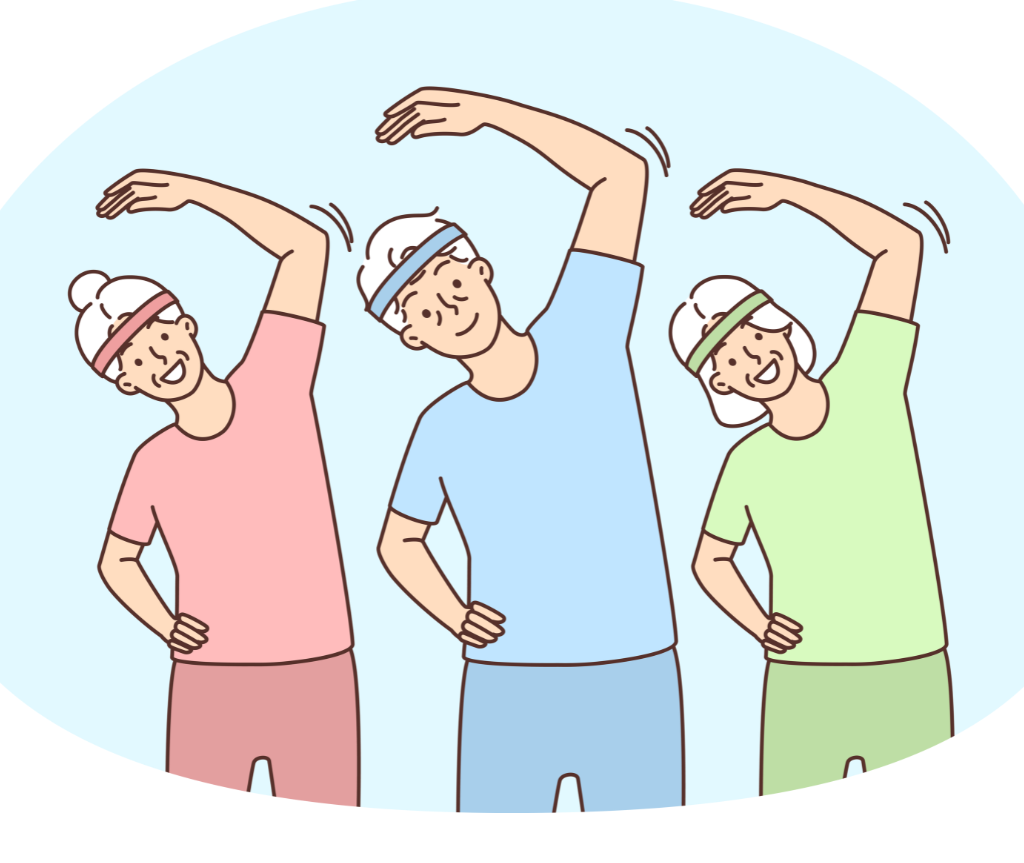Growing older is part of life — but how you age is shaped by the small choices you make each day. Imagine waking up with more energy, clearer focus, and the quiet confidence that your body and mind are working with time, not against it. Embracing simple lifestyle changes for longevity — from how you eat and move to how you rest and connect — can strengthen your body’s resilience and help you age with vitality, balance, and purpose.
That’s the power of small, science-backed lifestyle changes. You don’t need to chase miracles or trends — just a few simple shifts that nourish your body, calm your mind, and strengthen your resilience from the inside out.
Let’s explore five everyday habits that can help you age gracefully — and feel good while doing it.
1. Eat an Anti-Inflammatory Diet
Think of inflammation as a slow, invisible flame that wears your body down over time. The foods you eat can either fan that flame or cool it.
An anti-inflammatory diet is one of the most effective ways to protect your cells and keep them youthful. It’s less about restriction and more about adding colour, flavour, and life to your plate.
Picture a bowl of bright spinach, drizzled with golden olive oil, accompanied by a handful of blueberries, and topped with grilled salmon that glistens with lemon. These foods are rich in antioxidants and polyphenols — compounds that help repair cellular damage and slow the ageing process.
Research in Nutrients (2023) indicates that individuals who adopt this dietary approach exhibit lower inflammation markers, including C-reactive protein (CRP) and interleukin-6 (IL-6). The Mediterranean diet, rich in these ingredients, has long been associated with longevity and vitality.
Try this tonight: swap one processed snack for a fresh handful of walnuts or berries. It’s a tiny change with long-term payoff.
2. Add Interval Training to Your Movement Routine
Exercise isn’t just about burning calories — it’s one of the most powerful anti-ageing tools we have.
Interval training, in particular, does wonders for your cells. Imagine cycling or walking briskly for 30 seconds, then slowing down for 90. Repeat that rhythm for 15–20 minutes. That’s all it takes to wake up your mitochondria — the “power plants” in your cells — and help them function more efficiently.
A 2022 Mayo Clinic study found that interval training boosts cellular renewal and improves energy metabolism in older adults. It even increases telomerase, the enzyme that protects your DNA from the wear and tear of ageing.
Start small: add two short interval sessions a week to your usual walks or workouts. You’ll notice the difference in your stamina and mood before you see it in the mirror.
3. Control Stress with Mindfulness Meditation
We all know stress — the racing thoughts, tight shoulders, and restless nights. When it lingers too long, it floods your system with cortisol, accelerates inflammation, and speeds up the ageing process.
The antidote? Mindfulness meditation.
It’s not about silencing your mind — it’s about noticing what’s there with curiosity and kindness. Studies from the University of California found that regular mindfulness practice can lower cortisol levels by up to 30% and protect telomere length, keeping your cells biologically younger.
Try this: sit quietly for five minutes, focus on your breath, and let thoughts drift by like clouds. Over time, you’ll find yourself calmer, more centred, and better equipped to meet life with grace rather than reactivity.
4. Prioritise Restful Sleep
If food is your body’s fuel, sleep is its repair shop. During deep sleep, your brain clears waste, your tissues rebuild, and your hormones reset.
Aim for 7–9 hours of quality sleep each night. Consistent, restorative rest helps your body produce human growth hormone (GH), which supports muscle repair, energy balance, and youthful vitality.
To improve your sleep:
- Keep your room cool, dark, and quiet.
- Power down screens an hour before bed.
- Keep a gentle bedtime ritual — maybe a book, herbal tea, or gratitude journal.
Even one week of better sleep can sharpen your memory, stabilise your mood, and bring a glow that no cream can match.
5. Embrace the Power of Simple Change
Healthy ageing isn’t about overhauling your life — it’s about small, consistent acts of care.
Maybe it’s choosing olive oil over butter and taking the stairs instead of the lift, and sitting in stillness for two minutes before you start your day. These small things compound quietly, becoming the foundation of a longer, stronger life.
You don’t need perfection; you need momentum. Every small shift tells your body: I’m choosing health today.
The Bottom Line
Longevity isn’t about chasing youth — it’s about creating it from within.
When you eat for energy, move with purpose, manage stress, and honour your rest, you align your body with its natural rhythm of renewal.
So, which habit will you start today? Maybe a handful of berries, a deep breath, or an early night. Whatever it is, you’re investing in your most precious asset — your vitality.



